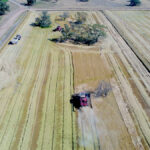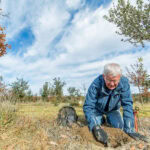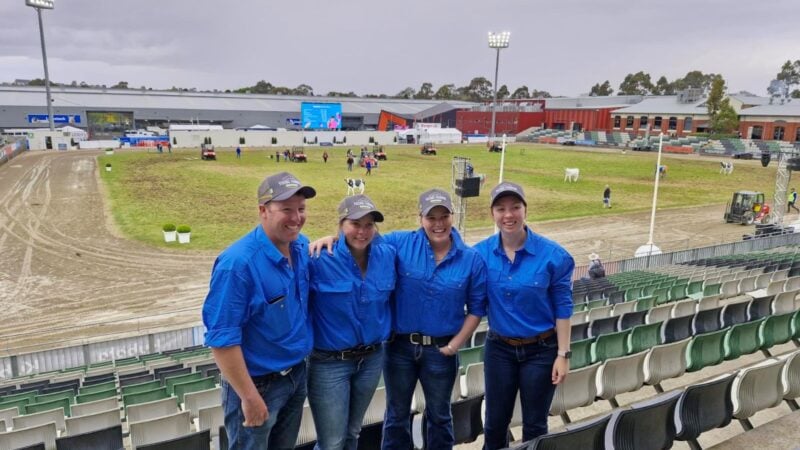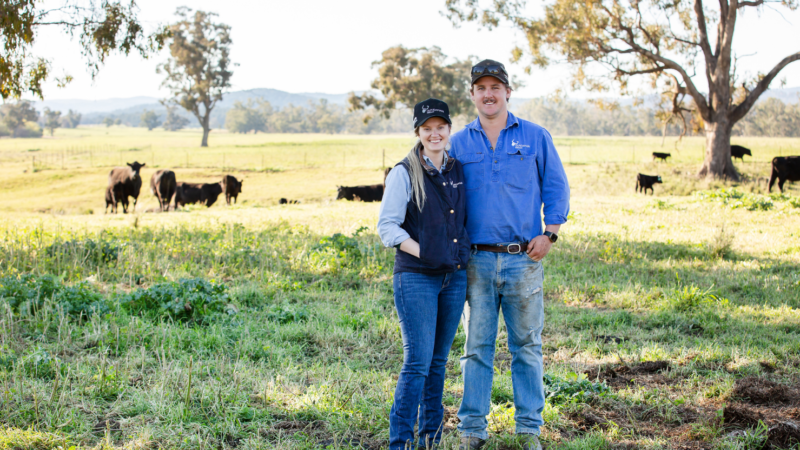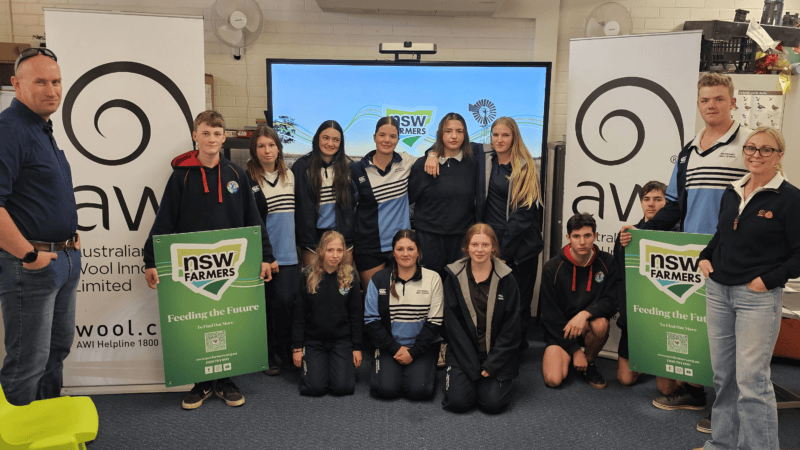There�s no one that grows rice better than Australia. Despite representing only 5 per cent…
New Gen: the Wilsons of Wallamore
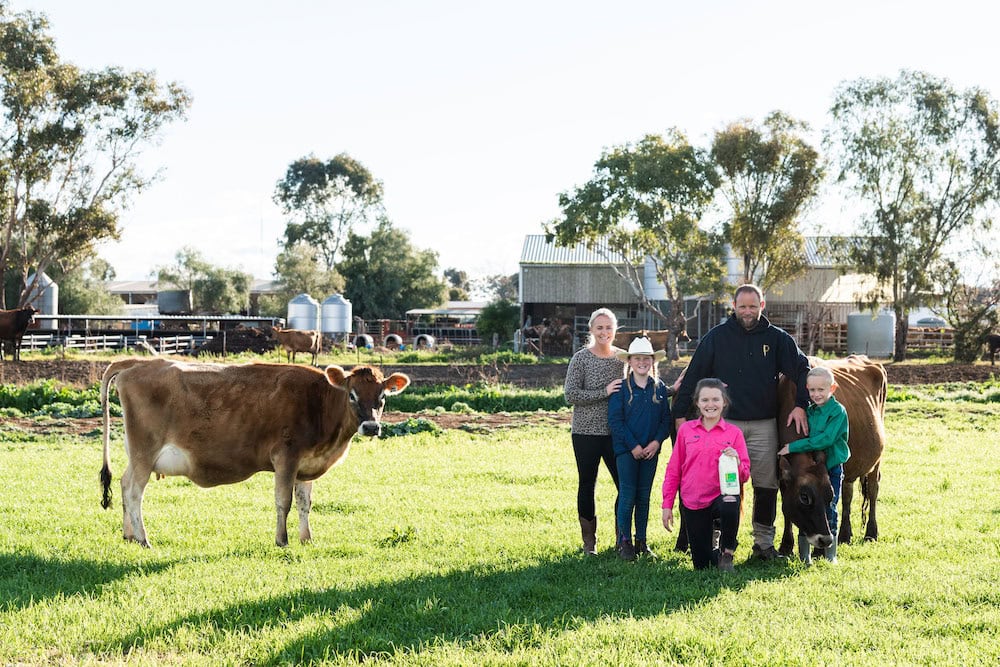
Just outside Tamworth in Wallamore, the Wilson family runs one of the most successful mid-size dairy enterprises in the state. The longevity of the business is the result of endless hard work, the inherent synergies of new gen farming, and the fact that they are innovators who’ve taken total control of their supply chain.
At the back end of the chain, the family owns a stud farm where they have spent the past 50 years delicately refining the genetics of jersey cows. Shirlinn Jersey Stud has a reputation for siring jersey cows that produce an average of 23 litres of milk in a day compared to the global average of 14 to 18 litres.
In 2014, the interbreeding judges at the Royal Sydney Show described a barrel-chested eight-year-old Shirlinn Stud as �the greatest Jersey cow to ever appear� in the show’s then 191-yearlong history.
At the front end of the chain, the Wilsons have their own milk and cream processing and packaging plant. A premium product that consistently tests for 4 per cent protein and 5 per cent butterfat, Peel Valley Milk retails for $1.78 to $2.20 per litre compared to $1.61 per litre for other brands.
To learn more about how the Wilsons pulled it off, The Farmer spoke with three family members from three different generations � all of whom, remarkably, still rise at daybreak to work on the land.
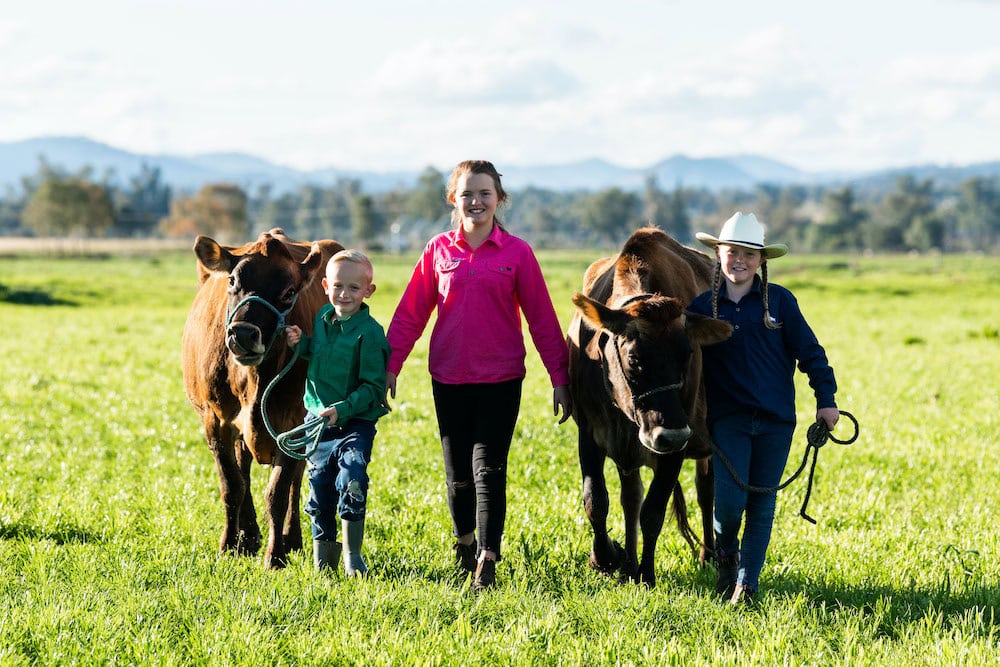
The good ol’ days
In 1918, James Wilson purchased bushland in the Avon Valley on the Mid North Coast of NSW. �My father and grandfather cleared the land and started dairy farming in the area,� says Lindsay Wilson, James’ grandson and now the family patriarch. �I was the youngest of nine children. As you can imagine, dairy was very different in those days.�
Lindsay was six years old in 1947 when the first milking machines arrived in the Avon Valley, but they still had to do a fair bit of milking by hand. �We all had our favourites, pets like you have today, cows that were always so quiet and never moved in the bale or knocked the bucket over,� Lindsay recalls. �And we had little metal stools to sit on. In the winter they got so cold we put a little pad on top to make them feel warmer and a bit softer.�
After Lindsay’s father died in the 1960s, the farm was sold to one of his big brothers. Lindsay moved out of home and got a job at a milk factory in the nearby town of Gloucester, but soon got into share-farming.
In 1971, he rented his first dairy farm and registered the Shirling Jersey stud name with his wife Shirley. �My grandfather had also started a stud farm and continued breeding right until my father dispersed the heard in 1959. The family name helped us to become well-known stud breeders,� he says.
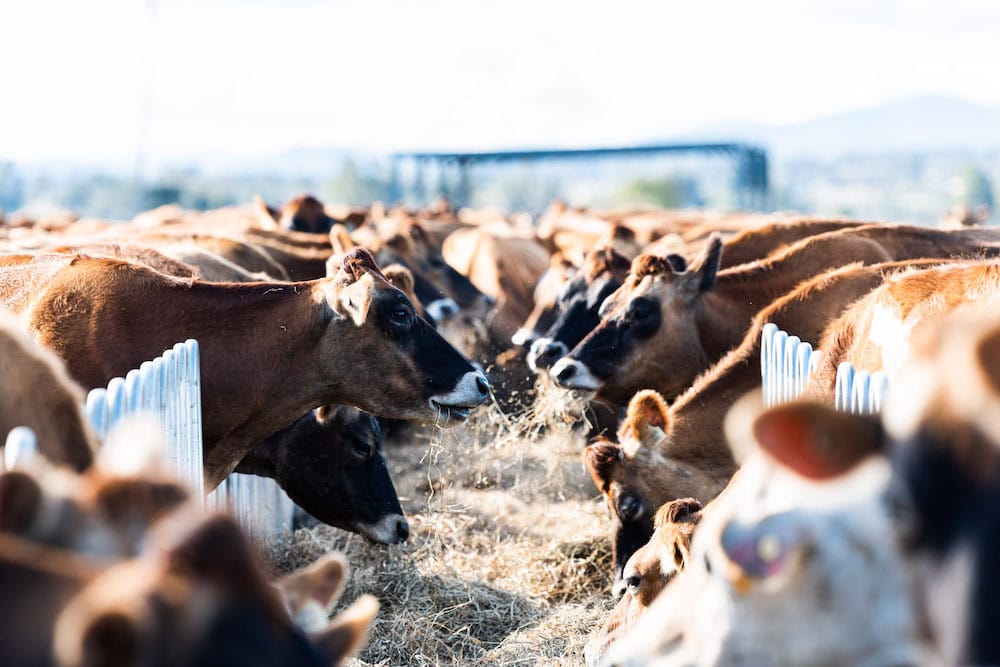
In 1976, the Wilsons won their first championship at the Sydney Royal Show � a winning streak that continues unabated today. In 1991 Lindsay became president of the Australian Jersey Society and in 1999 he organised the International Conference of the World Jersey Cattle in Melbourne.
�I have so many great memories from those days,� he says. �We certainly had a lot of challenges but I think we were better off back then as costs were not as great as they are today. And we were more respected by the government.�
Drought and deregulation
In the year 2000, Lindsay and Shirley ceded a dairy farm they’d purchased in the 1980s at Wingham on the Mid North Coast to their son Brian and his wife Vicky.
�We only had one son � our daughter became a dental nurse � so we were very fortunate that he had the same love for farming as we have,� Lindsay says. �We never had to push hard for him to be interested.�
But dark clouds were brewing on the horizon. Later that same year, the dairy industry was deregulated in NSW. Combined with price-gouging by supermarkets, retail prices eventually fell to as little as $1 a litre.
�Those were not the best of times,� Brian recalls. �Before that we had quotas and the milk processors gave us a set price. But after deregulation prices crashed overnight and a lot of our friends left the industry. We stayed, but in 2002 I moved the family inland from the coast. My thinking was that if the dairy situation did not improve, by purchasing two properties, we could still keep farming in some shape or form.�
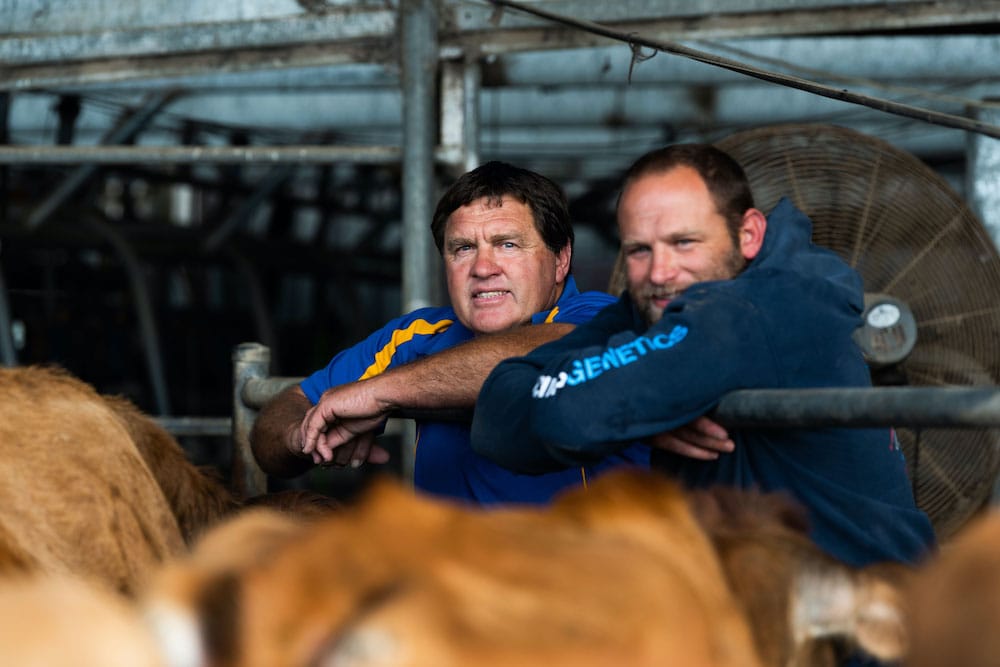
Then came the Millennium Drought � nine consecutive years of below-historical rain. But the Wilsons persevered and when the dry spell finally ended in 2010, they had not only survived but expanded their business after purchasing a third property at Wallamore.
�Being the middle generation, I’ve seen it all,� Brain says. �I helped out on the farm when dad was still renting and worked alongside for all but two years of my adult life.
�If you ask dad about his biggest achievement, he’d say it’s our breeding program. All three generations are really passionate about it. But if you ask me the same question, I’d say it was simply getting through the hard times � the drought and the deregulation period.�
He adds: �I could never have done it without my wife Vicky. She has played such a big part over the past 20 years � all the admin as well as raising three kids. She’s an incredible woman.�
New gen, and taking control
In 2017, the Wilsons were called to a meeting with their long-time processor Lion Nathan, owner of Dairy Farmers. The company had lost a number of its key markets. As a result, they said they were going to pay the Wilsons and another 550 dairy farmers even less for their milk. But the Wilsons had had enough.
�We thought we did a pretty reasonable job producing milk and what they were saying was ridiculous,� recalls Brian’s eldest son Todd. �That was the moment we stopped winging about being price-takers and took matters into our own hands.�
Brian was all for it: �We had debated getting into processing for a few years. We knew a guy who was doing it under the Peel Valley Milk brand for nearly 20 years, and at that time he was looking to sell his business and semi-retire. So rather than starting from scratch, we had a family meeting and agreed it would be a good idea to buy it.�
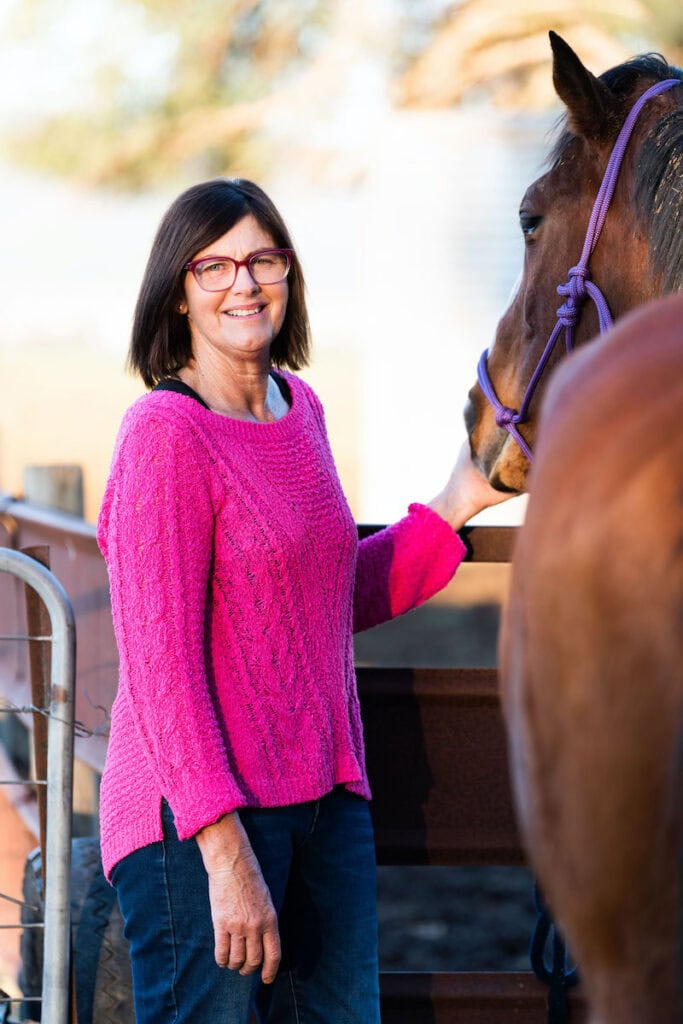
In the three years that have passed, the Wilsons have doubled output at the Peel Valley Milk processing plant and now produce just over a million litres per year. They supply both Woolworths and Coles as well as IGA supermarkets in the region, all the way down to cafes and corner stores.
�I wouldn’t say we took away the supermarkets’ power by becoming manufacturers, though it has given us leverage,� says Todd. �I think our main strength is that we supply a quality product with a richer, creamier taste and that’s created demand or a ‘want’ for our milk. That has put pressure on the big supermarkets to accept our prices and give us a go.�
The transition to manufacturing also meant a change in lifestyle for Todd.
�Before I was working outdoors and barely ever touched a computer. Now I’m in front of the computer all the time,� Todd says. �And being a manufacturer requires a lot more manpower, and that’s where working with the family has really helped. If someone’s short in one area, there’s always someone else around to pick up the slack. It’s been a massive bonus.�
New gen: 102 years later
This year marks the Wilsons’ 102nd on the land. Today, each unit of the family lives on separate properties but they still work as one.
Lindsay, who’s about to turn 80, still breeds jersey cows and gets involved in milking and farm chores whenever he can. �I can’t run 100 yards like I used to, but I’m still pretty strong,� he says.
Brian is 58 and has no plans to retire, while his son Todd and his wife Sarah run the Peel Valley processing and distribution plant. Then there’s the sixth generation of Wilsons, eight boys and girls aged between 2 to 12 years.
�Even with all the hard times we’ve had, it’s just such a great place for them to grow up,� says Brian. �They all love the farm and the bigger kids have started doing chores.
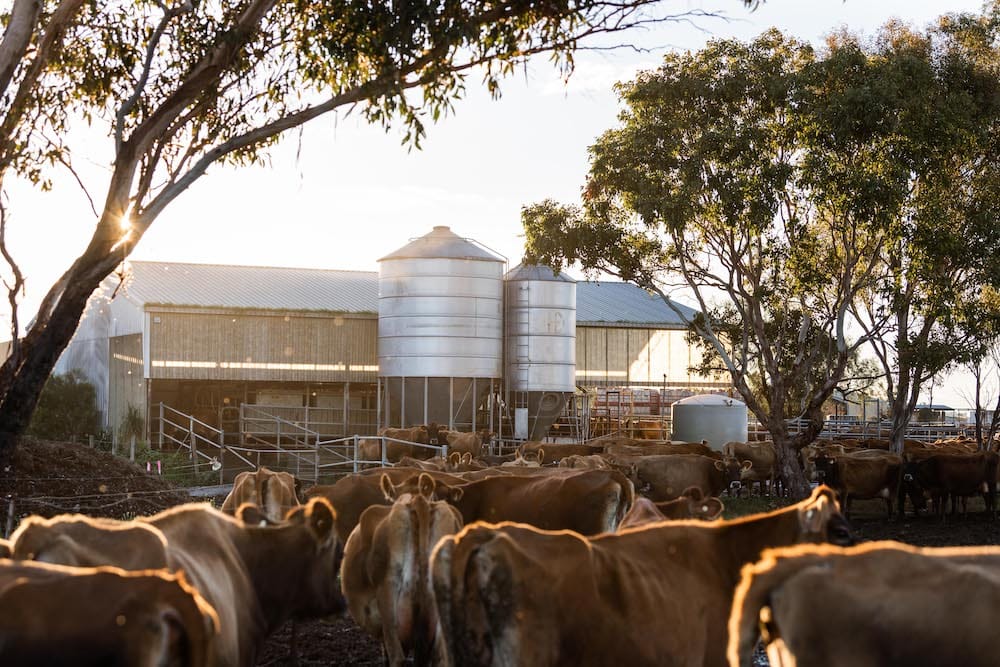
�Will they go into farming? Who knows,� he says. �As a family, we never pushed the next-generation side of things. If you expect that to happen, it puts a lot of pressure on the kids. It has to take place organically.�
But Lindsay reckons it’s a done deal. �It was so good for Shirley and I to have our son follow in our footsteps, and now our grandson is doing so well packaging and selling our own milk from our own cows.�
He adds: �It’s impossible to put a price on the value of inter-generational farming. If it continues it will be a tremendous thing.�

If you enjoyed this story, you might enjoy our New Gen feature on the Pollards from Young.


